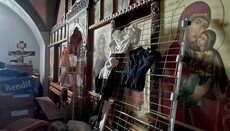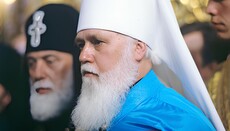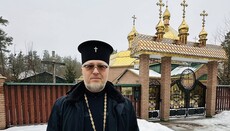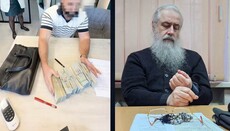Yelensky – UOC: Breathe... Don’t breathe
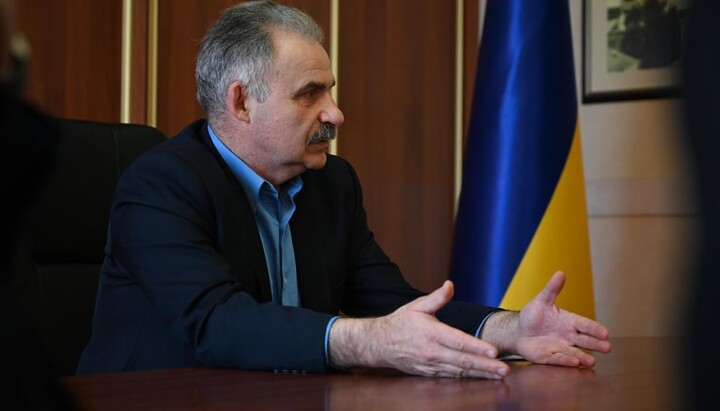
The hopes of some in the UOC clergy that they can somehow prove their independence from the ROC and then be left in peace are nothing but naïve illusions.
The head of the State Service for Ethnopolitics and Freedom of Conscience (DESS), Viktor Yelensky, gave an interview to Ukrainian Radio devoted entirely to the topic of banning the UOC – more precisely, to the government’s order that the Kyiv Metropolia “sever its ties with Moscow” within a month. And that’s where the contradictions begin.
1. Write to Moscow or not?
Right out of the gate, Yelensky declares that certain ill-wishers are spreading lies – that, in order to break ties with Moscow (ties which the DESS claims to have found only in ROC paperwork), UOC structures must write to Moscow. He calls this “a myth”:
“Another myth is that the DESS demands that the Kyiv Metropolia enter into relations with the Moscow Patriarchate and humbly ask the Moscow Patriarch to release them.”
Yet only recently Yelensky was saying the exact opposite – that, to avoid trouble, UOC structures should in fact write to Moscow:
“The head of that religious organization which is officially part of the Moscow Patriarchate but does not wish to be, simply makes a statement, sends a letter there, sends us a copy – and that’s all.”
So, yes – he did call on the UOC to “enter into relations with the Moscow Patriarchate.” He even held up such letters as proof of a “break with Moscow.” And now, suddenly, he no longer thinks so. Why the U-turn? And if not letters – then what kind of “proof” does the DESS actually want?
2. And what would count as proof?
In this new interview, Yelensky says the Metropolia must “provide evidence,” but gives no hint as to what he means by that. And that silence is telling. Most likely, such “evidence” simply does not exist in nature.
Take 2022, for example: after the Council in Feofaniya, the Primate of the UOC sent the DESS two letters – clear, formal, precise – setting out every proof required to satisfy the DESS’s own demands for breaking administrative ties with Moscow. Yet Yelensky brushed them aside.
It’s obvious that whatever the UOC sends him now will be dismissed as “not good enough.” Why? Because the real issue is not paperwork. The real issue is that the very existence of the UOC – in any form – is simply not in the government’s plans. The UOC must be dismantled and swallowed up by the OCU. Full stop.
3. “Joining the OCU is not obligatory” – really?
Yelensky assures us the state doesn’t care whether the UOC joins the OCU or not. Allegedly, “the state cannot require this.” Supposedly, the UOC will be free to “arrange its own existence, including canonically, as it sees fit.”
Fine words – but government deeds tell another story.
Not long ago, three Romanian-speaking UOC parishes in Bukovyna tried to transfer to the Romanian Patriarchate, hoping to avoid seizure by OCU militants. And what did the authorities do? They refused to register the Romanian Church’s structures in Ukraine.
Yelensky’s excuse? That such a transfer requires the OCU’s consent – since it “is responsible not only for Ukrainians but for all Orthodox Christians in Ukraine.”
Think about it: these “Romanian” UOC parishes did exactly what the government supposedly wanted – they left the Moscow Patriarchate (since, by DESS logic, the UOC is the ROC). Yet when they tried to “arrange their existence as they saw fit,” they were blocked.
And so the idea that part of the UOC clergy still clings to – that they can somehow convince the authorities of their independence from the ROC and be left alone – is sheer fantasy.
They will not be left alone. Whether you prove the break with the ROC or not makes no difference. The choice is the same: into the OCU – or out to the margins.
